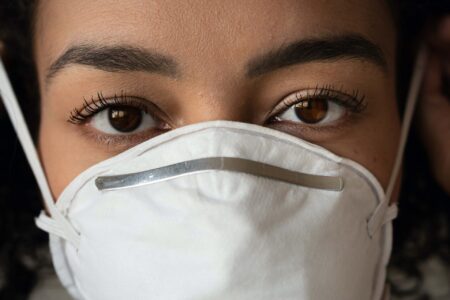Black patients are more likely to be hospitalized with COVID-19 than white patients with similar underlying health and socioeconomic conditions, according to a new Michigan Medicine study.
The research also found that having type 2 diabetes or kidney disease and living in high-population density areas are also associated with higher risk for COVID-19 hospitalization.
The study indicates that racial disparities in COVID-19 hospitalization cannot be explained even after considering age, sex, neighborhood socioeconomic status and comorbidities, said Tian Gu, the study’s first author and a doctoral candidate at the University of Michigan’s School of Public Health. Researchers did not find differences between African American and white patients in intensive care units and mortality outcomes.
“Knowing risk profiles associated with severe COVID outcomes can help us protect ourselves and protect the most vulnerable,” Gu said. “This calls for strategic action plans to eliminate health inequities that have persisted in our social system.”
Gu and colleagues used electronic health data from Michigan Medicine hospitals. They looked at a cohort of 5,698 patients tested for or diagnosed with COVID-19 between March 10 and April 22. A group of randomly selected, untested individuals were included for comparison.
The researchers examined factors such as race/ethnicity, age, smoking, alcohol consumption, body mass index and residential-level socioeconomic characteristics. They also compared comorbidities such as circulatory disease, liver disease, type 2 diabetes and kidney disease.
“We were able to connect the geocoded residence to census tract data to derive these residential variables, which was a new aspect of our study,” Gu said. “We also noticed some differences in the effect of obesity and prior cancer diagnosis having stronger association with COVID susceptibility in Black patients. On the other hand, the chances of hospitalization with overall comorbidity burden and type 2 diabetes were stronger in white patients.”
Senior author Bhramar Mukherjee, professor and chair of the department of biostatistics at U-M’s School of Public Health, said the results support targeted screening for elderly adults, members of the Black community and those with type 2 diabetes and kidney disease.
“Our findings highlight that poor COVID-19 outcomes are disproportionately associated with at-risk populations: elderly adults, those with pre-existing conditions and those in population-dense communities,” she said. “We call for increased investments in testing and prevention efforts in lower socioeconomic status, densely populated and racially diverse communities. It is these same communities that are home to a greater proportion of essential workers and thus need increased testing and protection.”
From Michigan Health






